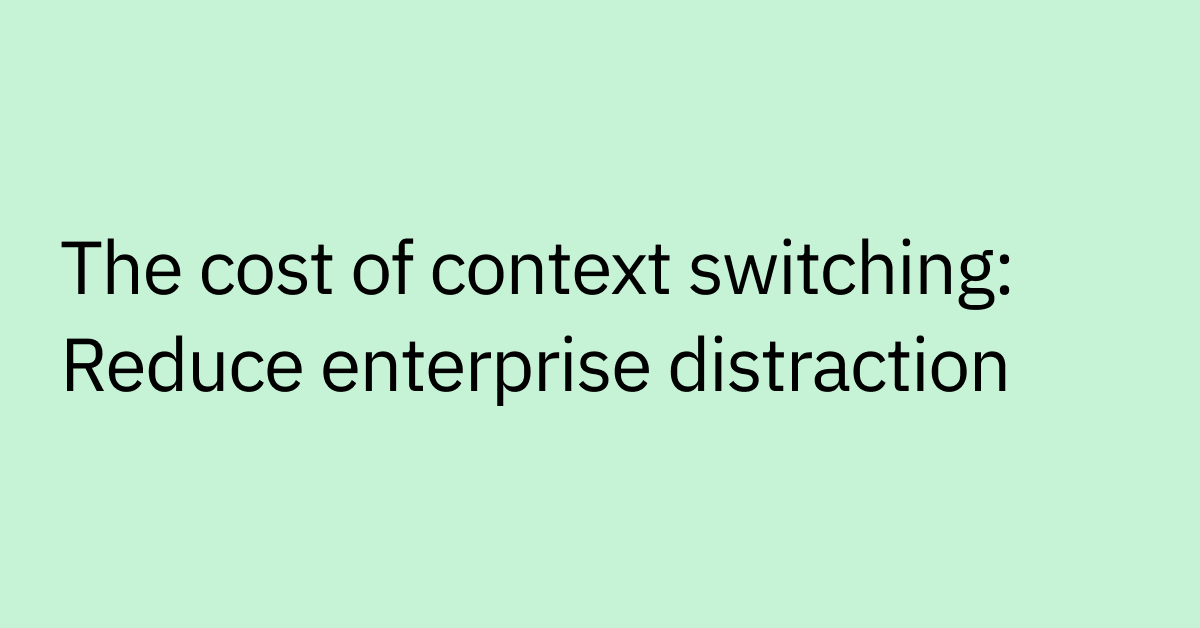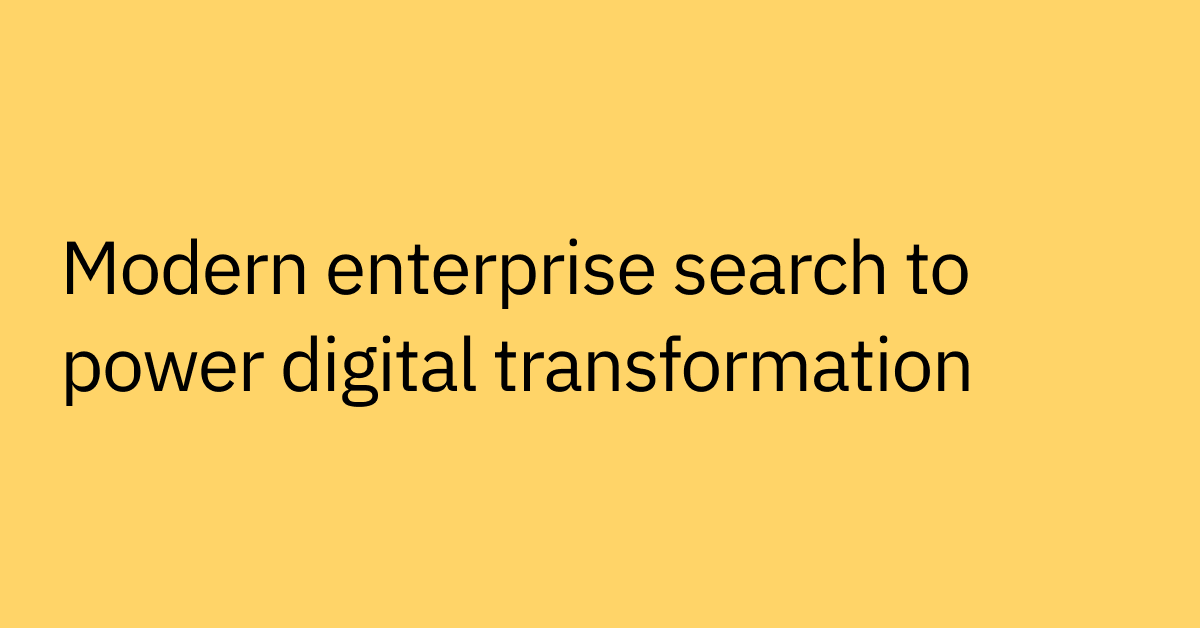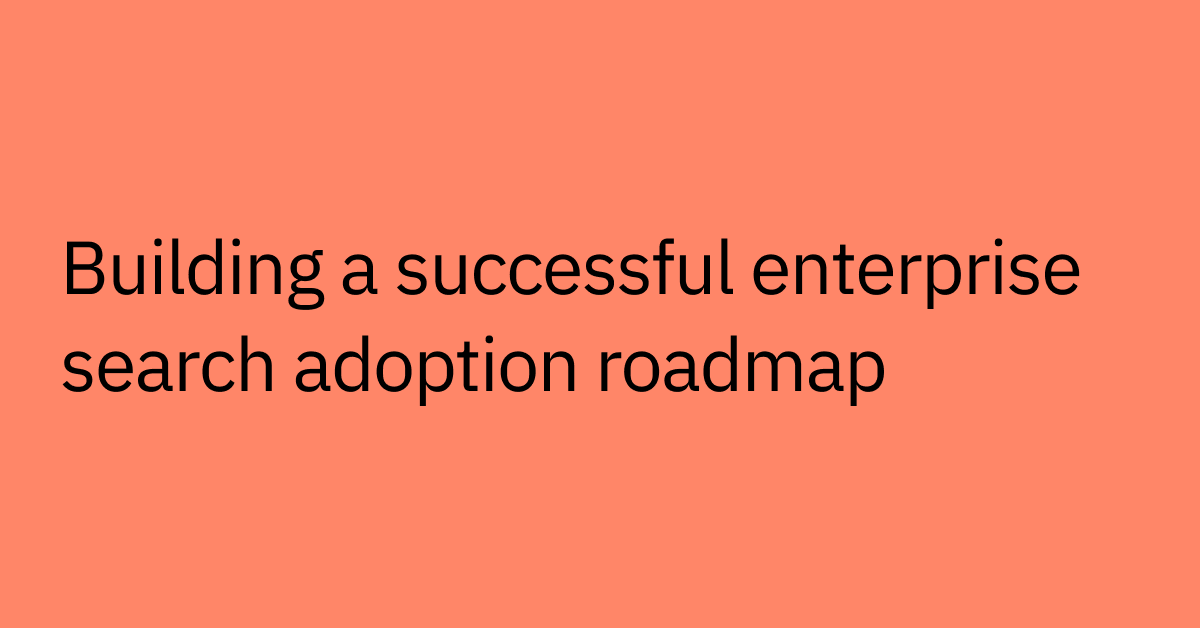Table of contents
Modern employees want (and need) more. According to a 2024 survey by Gallup, only 33% of employees reported feeling engaged, a disconnect that can show up across your employee satisfaction scores, turnover rates, and productivity levels too.
Today’s employees want companies to anticipate their needs, personalize their experiences, and make their work easier. But that can be a big ask in enterprise environments. Large teams, siloed tools, and clunky workflows often make engagement difficult to scale.
While improving this can feel daunting, artificial intelligence (AI) is stepping in to change how enterprises approach an improved employee experience.
AI powered tools and virtual assistants are helping to improve employee satisfaction and productivity by helping to streamline processes, provide personalized experiences, and free up employees to focus on more meaningful work.
Why employee engagement needs a rethink
Traditional employee engagement efforts, from wellness initiatives to personalized development programs, offer tangible benefits. Many businesses end up using one-off initiatives or hyper-focused engagement tactics to address problems like morale issues, lost productivity, and turnover.
But they aren’t always enough to meaningfully boost your employee sentiment or output on an ongoing basis, especially not at a large or global scale.
This is why AI is so important in modern enterprise work environments. It not only automates repetitive tasks but also provides real-time insights into the employee experience, setting the stage for improved engagement. When employee engagement typically drives retention, AI can be transformative for your business.
The role of AI in employee engagement
AI employee engagement is the use of artificial intelligence tools to improve, personalize, and streamline employee experiences.
AI employee engagement leverages artificial intelligence to enhance workplace efficiency by answering employee queries, automating repetitive tasks, sending timely notifications, recommending personalized training opportunities, and eliminating productivity barriers.
AI-augmented employee engagement strategies should go beyond simple automation or chatbots, it’s also a comprehensive approach that not only helps employees perform their roles more effectively but also supports HR teams in managing operations with greater ease and precision.
For example, AI assistants might grant users access to the tools they need whenever they need them, so they don’t have to halt work while they wait hours or days for IT approvals.
But AI doesn’t just benefit employees. It also makes work easier for HR leaders. Some HR staff report spending a whopping 57% of their time on administrative tasks
By minimizing admin burdens and increasing engagement, AI tools can encourage employees to be more open to using advanced technologies, making it easier for human resources and IT leaders to introduce modern systems.
Better work experiences could also help employees overcome their fears about being replaced by AI and see the technology for what it is — a valuable partner.
Benefits of using AI for employee engagement
AI is changing HR processes, specifically employee engagement, for the better by enabling:
- Increased employee satisfaction and well-being: When employees have on-demand access to the information they need, they feel heard and supported and get more time to focus on meaningful work, promoting job satisfaction.
- Frees up HR professionals: Enable your people team to focus on human-to-human connections instead of having their time eaten up by routine questions.
- More personalized, global support: AI-powered chatbots and virtual assistants can improve internal communications by providing instant answers to queries.
- Targeted reminders: These can lead to greater event attendance, increased benefit enrollment, and timely training completions, helping to support compliance — all wins for your enterprise.
- Multilingual capabilities: Some solutions also offer multi-lingual abilities to support diverse workforces and global operations, making it easier to scale assistance across complex enterprise environments.
- Proactive employee communications: AI systems can make internal communications more proactive by automatically segmenting staff based on their roles and locations and sending employee reminders for training, surveys, benefits enrollment, and company events.
- Insight-driven improvements: AI applications can help HR surface engagement data by distributing surveys and analyzing employee data on business platforms.
Common AI use cases that enhance employee experiences
AI is already helping companies around the world increase employee satisfaction and engagement levels, but you’ll need to implement and use it strategically. Here are some areas where these tools can have the biggest impact.
24/7 employee support
When employees have to submit a ticket or contact HR personnel for every question, they might end up waiting hours or even days to get answers. They may give up and look for information independently, which is not only inconvenient but can also lead to incorrect answers.
AI-powered tools, on the other hand, (particularly AI assistants) can provide instant, accurate answers to common HR and IT questions by pulling from relevant company resources or knowledge bases.
The tools can also boost employee productivity by allowing them to focus on their value-adding work instead of chasing down answers. They can do the same for HR and IT teams by reducing the number of repetitive questions in their inboxes.
Better onboarding and training experiences
AI can enhance new hire onboarding experiences and limit confusion by tailoring content and workflows based on role or location, helping you engage employees from day one.
Instead of learning generic details about your organization, new hires can focus on what matters for their roles, improving their experience from the get-go. Focusing on key content can shorten the ramp-up period as well, helping them become productive quicker.
Pulse surveys and sentiment analysis
Employee feedback and sentiment analysis are valuable tools for improving employee engagement, as they let you know what to work on. For example, Microsoft’s daily pulse survey helped enhance work-life balance for its teams by showing exactly where the company was falling short.
AI can help you do the same for your enterprise. Using natural language processing (NLP), it can analyze employee sentiment from surveys and other feedback collection initiatives, helping you uncover morale issues or workplace friction points before they escalate. This allows for timely intervention, helping to reduce your risk of employee disengagement, burnout, or turnover.
Employee communication and development
AI can send timely reminders and updates tailored to individual roles and priorities, from training to benefits enrollments to engagement surveys. They enhance your team’s efficiency by helping to make sure that these critical updates are not overlooked, while also delivering personalized messages that boost responsiveness across teams.
AI tools can also improve training experiences by delivering just-in-time training content, sending training reminders, and assisting with benefits enrollment, device setup, and permissions access. For example, a Workday plugin can remind employees about pending training to help minimize skill gaps and improve learning experiences.
AI-powered tools for employee engagement
AI platforms can help to efficiently address routine queries, tailor educational content to individual growth paths, and offer seamless communication.
Common AI tools for employees include: AI-automated service desks, AI-driven learning and development platforms, and AI virtual assistants, helping to enhance productivity and satisfaction, thus fostering a more engaged and motivated workforce.
AI-automated service desks
Service desks are essential for daily operations, but they’re often overwhelmed by high volumes of routine tickets, such as access requests and password resets. Automation helps reduce that load by enabling employees to resolve common issues on their own, improving both response times and satisfaction.
This can lead to a better overall experience on both sides and a more efficient support model.
AI-driven learning and development tools
Some employee platforms and AI assistants utilize machine learning algorithms to personalize learning paths, recommending courses and resources for individual employee needs and career goals. These platforms can analyze data, including past course completions and skills gaps, to proactively suggest relevant content.
Furthermore, AI-driven insights enable employers to track progress, identify areas for further development, and align training initiatives with strategic workforce planning.
Virtual AI assistants and chatbots
AI virtual assistants help employees navigate workplace tools and systems more efficiently — whether it’s requesting time off, finding a policy, or making sure they don’t miss a critical update. They use conversational and generative AI to streamline these processes by using natural language to provide immediate support and proactive communications.
Assistants enable organizations to send targeted communications campaigns by department, location, or other user specifications, helping the right messages reach the right employees. They can also send proactive reminders to employees to complete important actions, enroll in benefits, complete training and more, and focus on those who haven't yet engaged.
Some assistants and advanced chatbots also enable employee self-service for HR, IT, and other administrative tasks. With more advanced assistants with agentic AI abilities, employees are able to access information, resolve support tasks, and complete actions across multiple enterprise applications, reducing friction and improving the overall employee experience
That’s why companies like Jamf are adopting agentic AI to reduce their manual workloads and elevate workflows for increased productivity.
See how Moveworks drives engagement with an AI assistant employees actually want to use!
Support employees across the enterprise with an agentic AI assistant
Fostering belonging and purpose is more crucial than ever in our remote world. With Moveworks AI Assistant, you can build a more connected workplace.
Moveworks agentic AI Assistant is helping enterprises transform employee support through intelligent automation. Let your employees easily book time off, discover and join ERGs, gather employee sentiment, and send kudos— all from one place.
- Onboard employees faster: Moveworks AI Assistant helps your employees cut through the clutter, from setting up direct deposits to easily finding company values.
- Fuel career growth: Centralize key information and create opportunities for proactive development to close skill gaps and unlock internal mobility for stronger, more agile teams.
- Make compliance simple: Free your HR business partners from tedious tasks and let them focus on strategy. Moveworks AI Assistant can handle routine tasks — like updating legal names, sending security training reminders, and tracking HR cases.
Together, Moveworks empowers your organization to boost employee engagement, reduce friction, and build a more responsive workplac to support employee retention and satisfaction.
Ready to modernize your employee engagement strategies? Sign up for a demo today to see how Moveworks can help!



